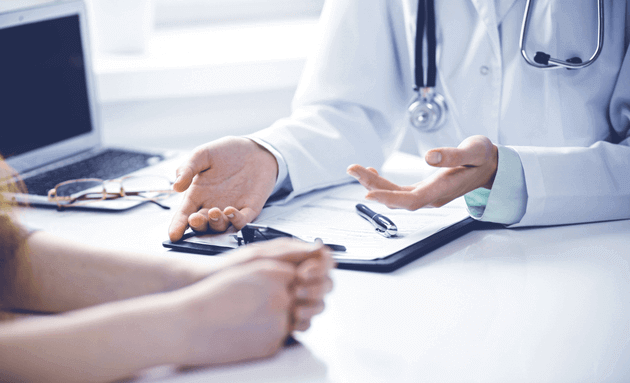Living with HIV coinfection: Tips to live a normal life
If you're living with HIV co-infection there are some ways to ease your burden. Here are some suggestions get support from those who understand what you're going through. There are many online and offline support groups for those suffering from HIV coinfection. It is important to take your HIV medications according to the prescription is vital to keep your virus in check. Keep up with your appointment with your doctor. Going to the doctor on a regular basis will help ensure that you're staying healthy and catching any health issues early.
Be sure to take care of yourself mentally and emotionally as well physically. This means getting enough sleep and eating a healthy, balanced diet, while finding ways you can cope with stress. This is vital for those suffering from HIV who are also infected. They must visit their physician regularly and adhere to the treatment regimen carefully. Eating a healthy diet helps patients with HIV coinfection to maintain their strength and energy levels. Exercise can help people suffering from HIV coinfection to remain healthy and fit. It can also help reduce anxiety and boost mood.

Sleep is crucial for people suffering from HIV coinfection because it
assists them in recovering from the fatigue triggered by the disease. Stress can worsen the symptoms that are a result of HIV coinfection, which is why it is crucial to find methods to control it. Yoga, for example, or meditation are helpful in reducing stress. There are many support organizations and groups that assist people suffering from HIV in a co-infection to meet other people who face similar issues. To gather extra information on HCV ADVOCATE kindly check out Hcvadvocate. Fitness is vital for everyone, but it's especially important if you have HIV or a co-infection. Exercise can enhance the immune system, and strengthen you overall. Rest is important for everyone however, it's more important when you suffer from HIV or a concomitant infection. Sleeping enough will help your body fight off infections. Stress can make it harder in your body's fight off infections. The most frequent OIs for people suffering from HIV include tuberculosis (TB) as well as HCV, hepatitis C (HCV) as well as herpes virus (HSV). The most frequent STIs are gonorrhea, chlamydia, and Syphilis. A person can contract the STIs when a person is first infected by HIV. It also can happen when a person's
HIV is not well controlled. Coinfection sufferers typically experience more severe symptoms, and a quicker progression to AIDS.

In addition, infections can make it harder to manage your HIV illness. This is because they lower your immune system's effectiveness and make it harder for your body to fight off infections. If you suffer from a coinfection and you are suffering from it, you might need to take multiple medications to cure it. You might also need to see a specialist to help you deal with your coinfections as well as HIV infection. It's crucial to speak to your doctor about your risk of developing a coinfection. If you suspect that you have a coinfection, make certain to be checked and treated as quickly as you are able. Coinfections can be serious however they're much easier to treat when they're caught early.
Patients suffering from HIV concomitant infections should have their blood checked regularly on a regular basis for HIV or other sexually transmitted diseases. Condoms are the most effective way to lower the chance of contracting or transmitting HIV and other sexually transmitted infections. Persons suffering from HIV coinfection must be honest about their situation with their
sexual partners as it can aid in preventing infection. There are a variety of organisations and groups of support that can assist people suffering from HIV coinfection overcome the challenges of the condition. Seeking out support will help you feel better and manage your condition more effectively.
Be sure to take care of yourself mentally and emotionally as well physically. This means getting enough sleep and eating a healthy, balanced diet, while finding ways you can cope with stress. This is vital for those suffering from HIV who are also infected. They must visit their physician regularly and adhere to the treatment regimen carefully. Eating a healthy diet helps patients with HIV coinfection to maintain their strength and energy levels. Exercise can help people suffering from HIV coinfection to remain healthy and fit. It can also help reduce anxiety and boost mood.

Sleep is crucial for people suffering from HIV coinfection because it

In addition, infections can make it harder to manage your HIV illness. This is because they lower your immune system's effectiveness and make it harder for your body to fight off infections. If you suffer from a coinfection and you are suffering from it, you might need to take multiple medications to cure it. You might also need to see a specialist to help you deal with your coinfections as well as HIV infection. It's crucial to speak to your doctor about your risk of developing a coinfection. If you suspect that you have a coinfection, make certain to be checked and treated as quickly as you are able. Coinfections can be serious however they're much easier to treat when they're caught early.
Patients suffering from HIV concomitant infections should have their blood checked regularly on a regular basis for HIV or other sexually transmitted diseases. Condoms are the most effective way to lower the chance of contracting or transmitting HIV and other sexually transmitted infections. Persons suffering from HIV coinfection must be honest about their situation with their
